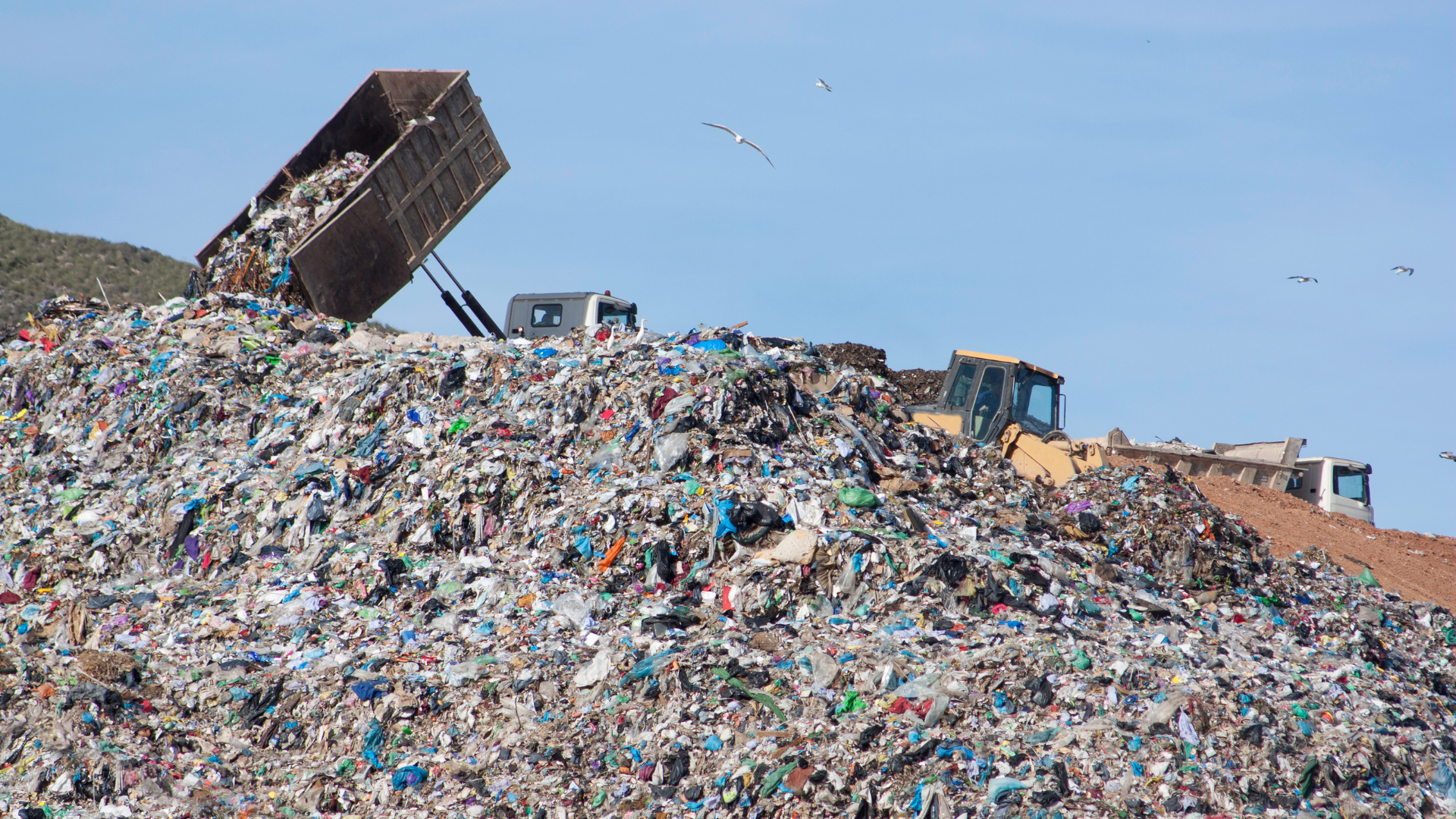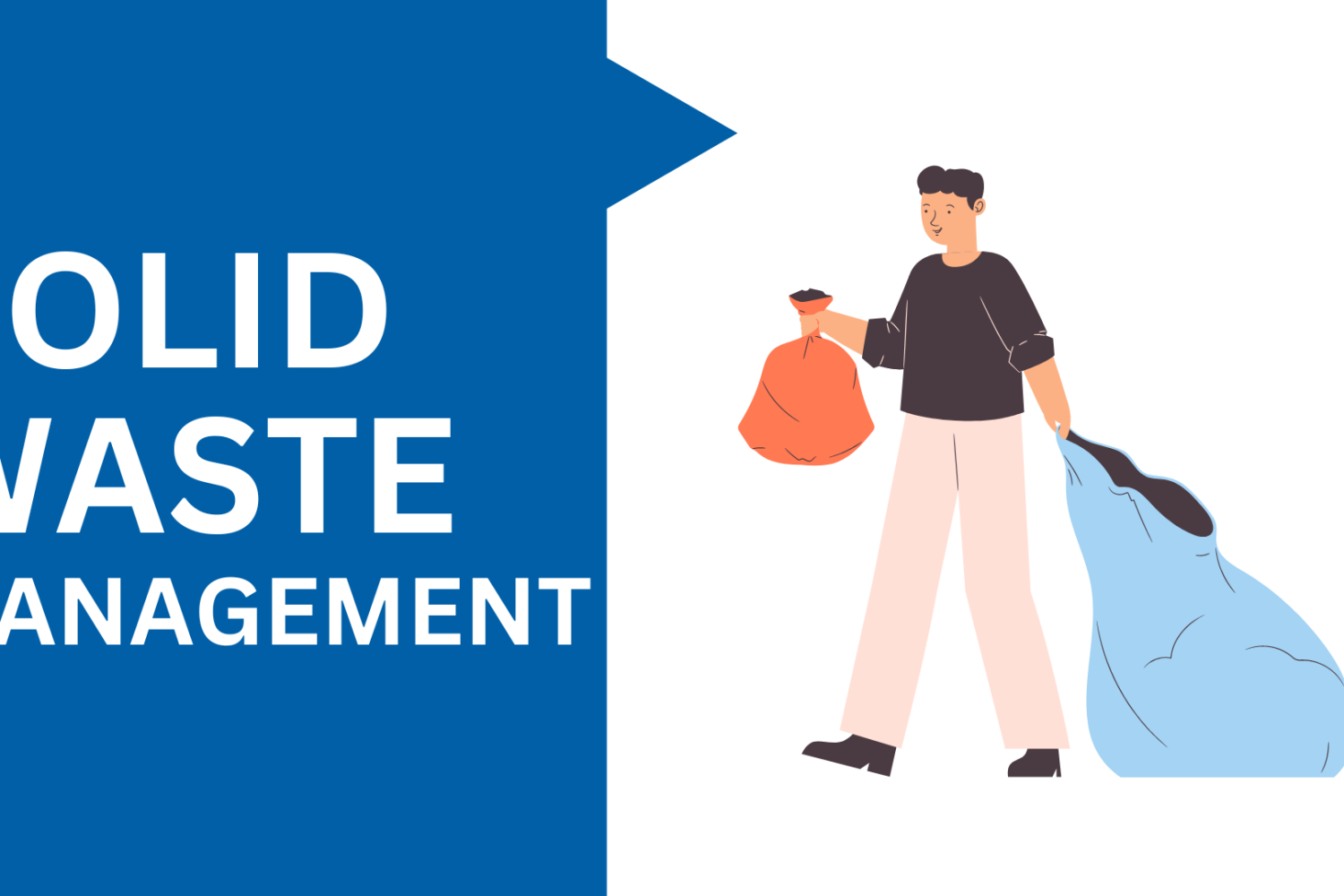What is Solid Waste Management?
Solid waste management is the process of collecting, treating, and disposing of waste in a safe and environmentally responsible manner. It involves the planning, organization, and implementation of waste management programs to reduce the impact of waste on human health and the environment.
What are the Sources of Solid Waste?
- medical waste
- Industrial waste
- agricultural waste
- Plastics, glass, metals, etc
The Environmental Impacts of Improper Waste Disposal
Improper disposal of solid waste can result in environmental pollution, health risks, and aesthetic degradation. It can also have negative impacts on wildlife and ecosystems. Solid waste can contain harmful chemicals and toxins that can leach into soil and water, leading to contamination and health hazards.
Waste Reduction: Strategies for Minimizing the Amount of Waste Generated
The main objective of solid waste management is to minimize the amount of waste generated and to promote the reuse and recycling of materials. This can be achieved through waste reduction strategies, such as reducing packaging and promoting sustainable lifestyles.
Recycling and Composting: Essential Components of Sustainable Waste Management
Recycling and composting are also essential components of solid waste management. Recycling involves the collection and processing of materials for reuse while composting involves the breakdown of organic materials into a nutrient-rich soil amendment. These strategies can help reduce the amount of waste sent to landfills, conserve resources, and reduce greenhouse gas emissions.
Landfills: How They Work and Their Environmental Risks
 Landfills are the most common method of waste disposal, but they can pose significant environmental risks if not properly managed. Modern landfills are designed with multiple layers of protective liners to prevent contamination of soil and groundwater. They also utilize systems to capture and treat leachate and methane gas, which can be generated by the decomposition of organic waste.
Landfills are the most common method of waste disposal, but they can pose significant environmental risks if not properly managed. Modern landfills are designed with multiple layers of protective liners to prevent contamination of soil and groundwater. They also utilize systems to capture and treat leachate and methane gas, which can be generated by the decomposition of organic waste.
Incineration and Waste-to-Energy: An Overview of Burning Waste for Energy Generation
Incineration is another method of waste disposal that involves burning waste to produce energy. This method can be efficient in reducing the volume of waste, but it can also result in air pollution if not properly controlled. Waste-to-energy facilities use incineration to generate electricity, but they must comply with strict environmental regulations to prevent harm to human health and the environment.
Coordinated Efforts: The Importance of Community Involvement in Effective Waste Management
Solid WM requires a coordinated effort between governments, businesses, and communities. Effective waste management programs must consider local conditions, cultural practices, and available resources. Community involvement and education are also essential for promoting sustainable waste management practices and reducing the amount of waste generated.
Looking Ahead: Future Directions in Solid Waste Management and Sustainability
As society becomes more aware of the need for sustainable waste management practices, new technologies, and methods are being developed to improve the efficiency and effectiveness of waste management programs.
Some examples include waste-to-energy technologies, advanced recycling methods, and the development of sustainable materials. The future of solid waste management will require ongoing innovation, education, and collaboration to meet the needs of current and future generations.
Why burning waste is not the acceptable practice of solid waste management?
In today’s rapidly developing world, effective waste management is a critical environmental and public health issue. As cities grow and consumption patterns change, the volume of solid waste generated escalates, posing significant challenges to sustainable development. Among the traditional methods of waste disposal, burning or incineration has been practiced for decades.
However, this method is increasingly under scrutiny due to its negative implications. This article explores why burning waste is not an acceptable practice for managing solid waste and delves into the adverse effects it has on the environment, public health, and the economy, while also highlighting alternative, more sustainable waste management solutions.
Why Burning Waste Is Not Acceptable?
Environmental Impact
Air Pollution
Burning waste releases toxic pollutants, including dioxins, furans, and particulate matter, contributing to air pollution and exacerbating climate change.
Greenhouse Gas Emissions
Incineration emits carbon dioxide and other greenhouse gases, contributing significantly to global warming.
Impact on Wildlife and Ecosystems
Toxic residues from burning waste can harm wildlife and ecosystems, contaminating soil and water bodies.
Recycling Processes
Sorting and Separation
Waste sorting is crucial for effective recycling, separating different types of materials such as plastics, metals, and paper.
Composting
Organic waste is decomposed under controlled conditions to produce compost, which can be used as a soil conditioner.
Incineration
Burning waste to produce energy while reducing its volume.
Anaerobic Digestion
Microorganisms break down organic materials in the absence of oxygen, producing biogas that can be used as a fuel.
Health Risks
Respiratory Problems
Exposure to emissions from waste burning can cause respiratory issues, including asthma and bronchitis.
Cancer and Other Diseases
Long-term exposure to pollutants can increase the risk of cancer, cardiovascular diseases, and other serious health conditions.
Economic Implications
Cost of Pollution Control
Managing and mitigating the pollution caused by burning waste requires significant financial resources, diverting funds from other crucial services.
Loss of Recyclable Resources
Incineration destroys materials that could be recycled and reused, wasting valuable resources and energy.
Healthcare Costs
The health impacts of burning waste lead to increased healthcare costs, burdening individuals and the public health system.
Challenges in Solid Waste Management
Increasing waste volumes, technological challenges, financial constraints, and policy and regulatory issues pose significant challenges to effective waste management.
Conclusion of Solid Waste Management
In conclusion, solid waste management is an essential practice for protecting human health and the environment. The impacts of improper waste disposal are far-reaching and can have long-lasting effects on the health of our planet.
By implementing sustainable waste management practices, such as waste reduction, recycling, composting, and the use of modern landfills and waste-to-energy facilities, we can reduce our impact on the environment and conserve resources for future generations.
Effective solid waste management requires collaboration between governments, businesses, and communities. It also involves ongoing innovation, education, and research to improve waste management practices and develop new technologies. By working together, we can create a more sustainable future and turn trash into treasure.


